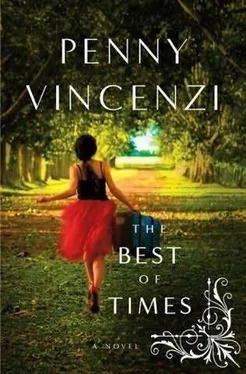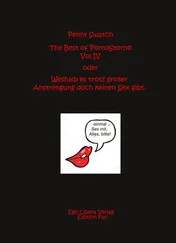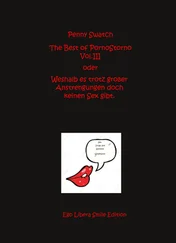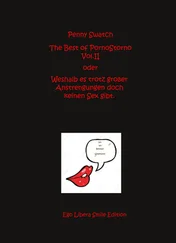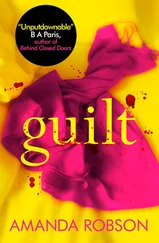Penny Vincenzi - The Best Of Times
Здесь есть возможность читать онлайн «Penny Vincenzi - The Best Of Times» весь текст электронной книги совершенно бесплатно (целиком полную версию без сокращений). В некоторых случаях можно слушать аудио, скачать через торрент в формате fb2 и присутствует краткое содержание. Жанр: Современная проза, на английском языке. Описание произведения, (предисловие) а так же отзывы посетителей доступны на портале библиотеки ЛибКат.
- Название:The Best Of Times
- Автор:
- Жанр:
- Год:неизвестен
- ISBN:нет данных
- Рейтинг книги:3 / 5. Голосов: 1
-
Избранное:Добавить в избранное
- Отзывы:
-
Ваша оценка:
- 60
- 1
- 2
- 3
- 4
- 5
The Best Of Times: краткое содержание, описание и аннотация
Предлагаем к чтению аннотацию, описание, краткое содержание или предисловие (зависит от того, что написал сам автор книги «The Best Of Times»). Если вы не нашли необходимую информацию о книге — напишите в комментариях, мы постараемся отыскать её.
The Best Of Times — читать онлайн бесплатно полную книгу (весь текст) целиком
Ниже представлен текст книги, разбитый по страницам. Система сохранения места последней прочитанной страницы, позволяет с удобством читать онлайн бесплатно книгу «The Best Of Times», без необходимости каждый раз заново искать на чём Вы остановились. Поставьте закладку, и сможете в любой момент перейти на страницу, на которой закончили чтение.
Интервал:
Закладка:
“Darling! Oh, darling, how awful…” Laura’s face and voice showed nothing but concern. “Serena, I’m so sorry; I think it’s delayed reaction from yesterday. It must have been such a horrible experience for him-and the heat, of course; he really doesn’t do heat very well…”
And, grateful for the excuse, dimly aware that Mark Edwards was hosing down the path even as Laura helped him into the house, terrified he was going to vomit again, he bolted into the Edwardses’ cloakroom and sat there for a long time, holding his head and wondering how on earth he was going to get through the next days and weeks-and possibly even years.
For the dawning of the day had made him realise that he was in a fairly appalling mess. To start with, he was going to have to explain to Laura why he had been on the M4 at all, rather than the M40, and moreover with a woman, a young and attractive woman-although maybe Laura would not have to know that-for whose presence he would have to provide an acceptable explanation.
There was also the uncomfortable fact that at the time of the crash he had been on the phone, and the police might well take the view that that made him at the very least not entirely blameless, and that they should investigate his version of events rather more closely than they might have done. Of course, it had not been dangerous, and the moment he had realised the trouble they were in, he had quite literally dropped the phone-but then again, they might not accept his word for that. And maybe-just maybe-it had meant his reactions were not as sharp as they should have been; maybe he’d swerved in his turn into the lorry…
Forcing himself to relive the whole thing in painstaking detail, over and over again, he had decided that, at least, was not even remotely possible; but the police might well not agree. And there would be a lot of close questioning: and of Abi as well. He was, in fact, in what was known as a terrible bind.
William was having a difficult day. The cowman, returned from his day off, had pointed out a couple of cows looking off-colour: “Could be bluetongue; let’s hope not.”
William agreed they should hope; it was not in the language of farming, with its day-after-day routine of problems, some huge-like foot-and-mouth or TB-some smaller-like mastitis, or the delivery of a sickly calf-to express emotion verbally. But if the cows had blue-tongue, it would be pretty disastrous. They would survive because they had to, and because there was, actually, no alternative. All their money, all their assets, their entire future was invested in these acres of Gloucestershire; they might own the land, two thousand acres of it, they might be rich on paper, but it was of doubtful value if farming as an industry failed.
Right at the moment, though, farming was having one of its rare ups rather than downs; the price of milk had risen, along with everything else; there were reports of a coming food crisis, of a world shortage of wheat and rice, a higher demand for dairy products-which was improving the outrageous, profit-leeching price of milk-and food prices too were higher than they had been for years. But costs were still very high, the price of fuel was eye-watering, and the farm overdraft was still way over the agreed limit.
And they were under siege from the Greens, constantly and rigorously inspected by people who seemed to know almost nothing about the realities of farming, but who would ruthlessly cut subsidies if a new and entirely necessary building entailed cutting down trees or cropping hedges. The government urged them all to diversify, which William was absolutely in favour of, except that diversification inevitably led to more people, more construction, more waste products. Which led to more complaints from the Greens.
And then his parents were very opposed to change. His proposal to jack up the commercial shoot business had fallen on very stony ground; his father loathed seeing what he called the city boys tramping over his land, in charge of guns many of them were scarcely qualified to use. It was a miracle, he said, none had been injured.
And then just before lunch today, hours before he’d been expecting them, his parents had arrived back from their holiday, and his father had been heavily critical about the state of the yard and the fact that the cows had not been moved to the other field, despite his instructions; and his mother was full of complaints about the state of the house.
William explained about the crash and the helicopter in the field, and said he’d move the cows that afternoon, and even managed to apologise to his mother for the mess she had returned to. Which he did have to admit was rather bad; but he’d been out on the farm from six every day, grabbed some increasingly stale bread and cheese at lunchtime, and come in at dusk to feed himself from some tins from the store cupboard.
“I don’t know what you’re going to do when I retire,” his father said, as he had at least fifty-two times a year for the past five years; William longed to tell him that his life would be a great deal easier if he could run the farm on his own, using his methods, streamlining costs as he saw fit, instead of its being one huge, unworkable compromise. But as far as he could see, his father would never retire; he was sixty-two now, and the farm was still his life.
He knew he should have a serious confrontation with his father on the subject of modernisation, but he shrank from pointing out the unpleasant fact that he was growing old and out of touch. Time, he told himself, would solve the problem, along with the related one of his living at the age of thirty-four in his parents’ house, his domestic life entirely in the care of his mother. It had its bright side, obviously: there was always a meal on the table, and his washing was done. But on the other hand, he found still being told to hang up his coat and take his boots off and clean up the bathroom after himself quite trying. He should be married by now, he knew, but somehow he’d never found anyone who both knew about farming and whom he fancied-and who would put up with living in a house where time had stood more or less still since the 1950s.
And besides, he really didn’t have the time to find her…
And all through this long, predictably difficult day, he kept returning to the one before, so literally nightmarish in recollection, hardly credible at this point. He kept seeing it all, again and again, almost detachedly now-like something on television or in a film, or even in a radio play, for the noises had been as vivid and horrifying as the sights. He remembered feeling the same way about the events of 9/11: he had sat watching the screen, fascinated as much as appalled, and actually thinking what a fantastic film it was, how brilliant a notion. But it had been real, of course; and yesterday had been real-the deaths and the pain and the grief and the moment-by-moment awareness of seeing lives wrecked and ruined. He had seen so much and yet so little of the actual crash; from his grandstand view he had focussed, in appalled fascination, on the lorry, but that had been all. With a gun to his head he could have told no more details, no possible further causes; the police would be requiring a statement, he knew-he was a key witness, given his viewpoint-but he feared he would be a disappointment to them. He felt increasingly distressed by some memories, all still so vivid: the girl in the Golf lifted tenderly out, as if that was important; the hideous sight inside the minibus, the young father weeping over his dead wife; and he was comforted by others, by his ability to provide a safe landing for the helicopter, by the astonishing gratitude of people when he gave them water, by the easing of the misery of the small boys as they formed an attachment to that girl, that tough, brave girl, so gentle with the little boys…
Читать дальшеИнтервал:
Закладка:
Похожие книги на «The Best Of Times»
Представляем Вашему вниманию похожие книги на «The Best Of Times» списком для выбора. Мы отобрали схожую по названию и смыслу литературу в надежде предоставить читателям больше вариантов отыскать новые, интересные, ещё непрочитанные произведения.
Обсуждение, отзывы о книге «The Best Of Times» и просто собственные мнения читателей. Оставьте ваши комментарии, напишите, что Вы думаете о произведении, его смысле или главных героях. Укажите что конкретно понравилось, а что нет, и почему Вы так считаете.
